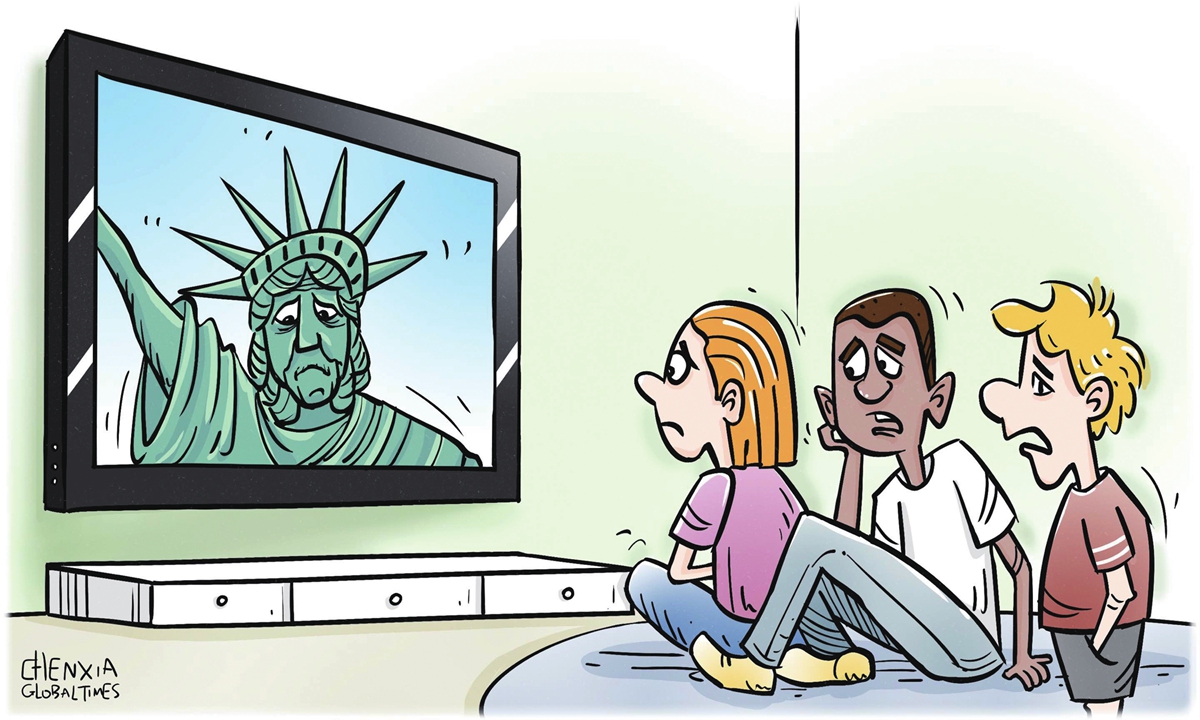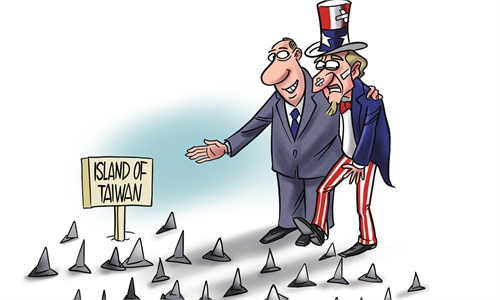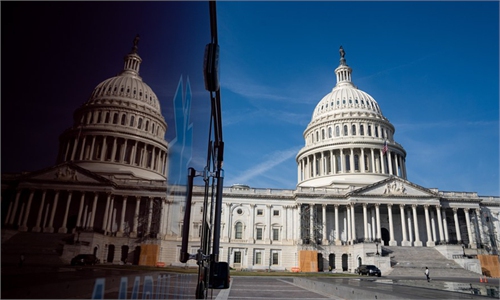
Illustration: Chen Xia/GT
Unsurprisingly, the United States of America crises currently abound. Our previous President is facing dozens of criminal charges, over a million of us have died of COVID-19, our national credit rating was just downgraded for only the second time in our history, one in eight American children go hungry each day, and one in every 30 American children is homeless.Beyond that, American worker wages have been effectively stagnant for the past half-century, and feelings of job insecurity are high.
The income required to buy the average single-family home in our fine nation, rose from $82,825 in the first quarter of last year to $102,557 in 2023's first quarter. Not one of our 50 states has a median income that comes close to $102,557. Food prices are at their highest point in decades, household debt is at the highest it's ever been.
All this news is alarming. Columnist Ingrid Jacques who writes for USA Today, wrote in her recent essay titled "Gen Z doesn't love the US like boomers do. That doesn't bode well for our future," that ignorant younger Americans who are less proud of our country and have less faith in its economic system of capitalism than older generations.
For mainstream American pundits like Jacques, more uncritical pride in American and its economic system and policies is needed, not structural change. After all, she asserts, "We can't blame young people for not loving and defending a system they don't understand… You defend what you love. Yet, you cannot love what you don't know."
It is true that millennials and zoomers have less charitable estimations of American history, our economic system and a less optimistic outlook on the future made for us by previous generations.
We were founded on colonialism, dispossession of indigenous peoples, and slavery. After slavery we created a racial apartheid system that inspired Adolph Hitler and his Nazis.
After we reluctantly joined the Soviet Union, the United Kingdom and China to defeat Nazis, Italian fascists, and imperial Japan, we employed the Nazis to win the Cold War.
Those same American military and intelligence agencies have gone on to overthrow many democracies across the globe.
All this might have contributed to why in a WIN/Gallup survey of people in over 60 countries the United States was listed most often as the globe's biggest threat to world peace. Today's younger generations may be more connected to their peers in other nations through the internet than previous generations, and thus more informed as to the full extent of the carnage produced by American imperial adventurism.
We also may be the ones most acutely feeling how bad things are. Our wealth gap is growing and at Gilded-Age levels, the power of the dollar is diminishing, we work more hours for less vacation time than our parents and grandparents.
Beyond that we're not safe. American police kill many more of us than police forces from other wealthy nations do of their own residents. We incarcerate more people than any other nation on both a per capita and overall basis.
The US government operates ethnic concentration camps at our Southern border filled with families that we've trafficked after ignoring federal and international law by refusing them amnesty application processes. The US government refuses to give healthcare to all its people, even during a pandemic.
We jail journalists and their sources for reporting on our war-crimes, and our infrastructure is crumbling. We allowed over 500,000 Americans to go homeless last year.
Our life expectancy has gone down despite us being the richest nation in the history of human civilization, and it had already gone down before we let the COVID-19 pandemic ravage us.
What, exactly, is there to be proud of?
Americans can only be legitimately proud to be Americans once we fight to reshape it from the belligerent warmonger that it is to a peaceful nation.
The uncritical patriotism of the past has enabled American empire to wreak death and havoc across the world as well as within our own borders. The millennial and zoomer generation's poor view of America and capitalism reveals a clarity of vision and sober assessment of reality.
The late American political philosopher Sheldon Wolin argued for a patriotism based on aspirational values, "a reasoned but critical allegiance to certain shared values that define the kind of collective identity to which we would want to think of ourselves as loyal." Beyond that, he also imagined that a nobler communal goal than any patriotism was possible and preferable.
Wolin said it was time for Americans to devote their fealty to democracy instead of cruel economic systems or jingoistic patriotism. "I would propose democracy: It is far less exclusionary, in principle and practice, than nationalism, patriotism or the ideology of capitalism," he wrote.
In younger generations' honest and wise evaluation of America we see a statement of what we value - life, liberty, justice, health, and one another - and that expression lists the things that can and should legitimately unite us.
The author is a Chicago-based columnist covering US politics & culture. He is also a university English & critical journalism instructor. opinion@globaltimes.com.cn


